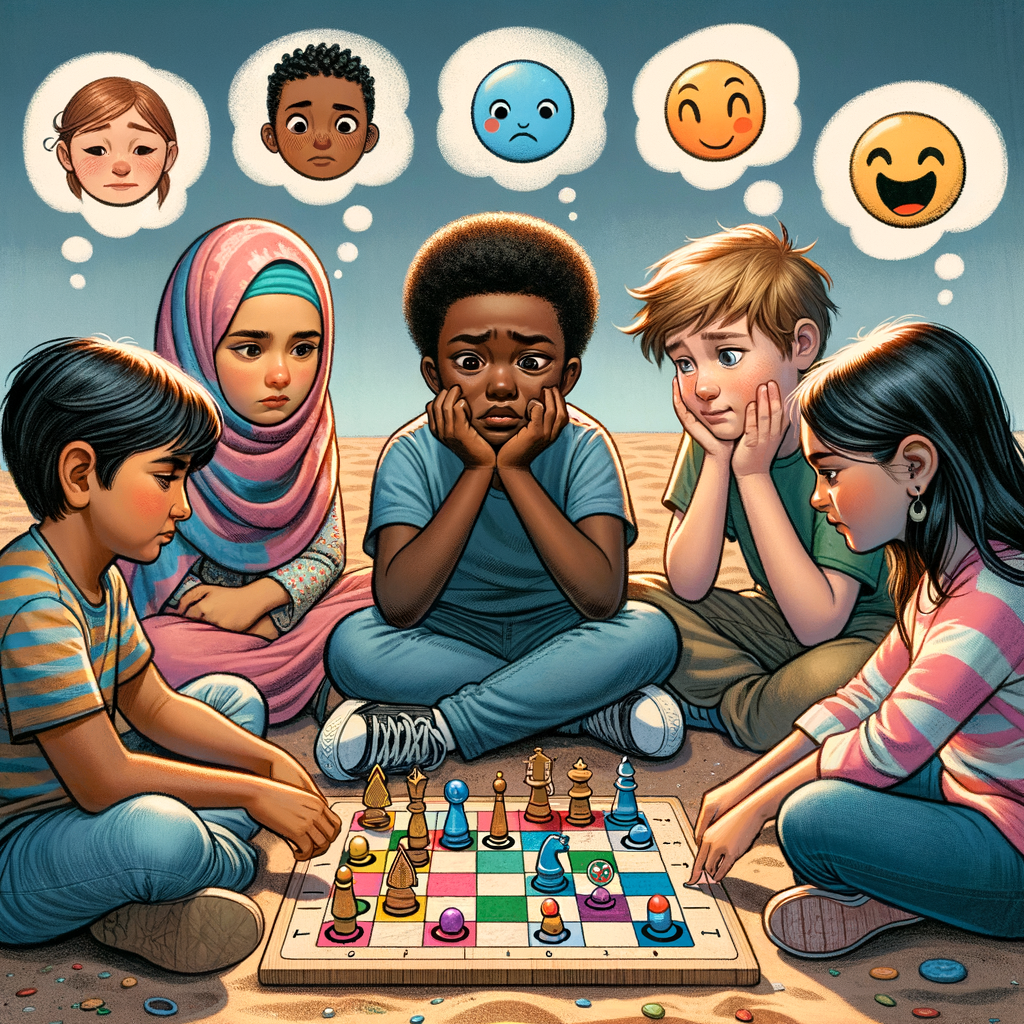
In a world where screens often dominate our kids’ playtime, role-playing games (RPGs) shine as a beacon of creativity and emotional growth. These games not only provide a thrilling escape into fantastical realms but also serve as invaluable tools for building empathy and understanding. When children immerse themselves in the roles of characters with diverse backgrounds and experiences, they embark on a journey that goes far beyond mere entertainment. Let’s explore how these enchanting adventures foster emotional intelligence and compassionate connections among young players.
Leveling Up Empathy: How RPGs Transform Young Hearts
RPGs invite players to step into the shoes of various characters, each with unique backgrounds, challenges, and emotional landscapes. This immersive experience enables kids to see the world through different perspectives, fostering a deeper understanding of others. When a child becomes a courageous knight or a wise wizard, they not only engage with the character’s goals but also experience their fears and dilemmas. This empathetic engagement cultivates emotional growth, as children learn to recognize the feelings and motivations of others.
Moreover, the collaborative nature of RPGs enhances this emotional education. Players often work together to achieve common goals, negotiating differences and supporting one another through challenges. As they navigate complex scenarios, children learn the importance of teamwork, communication, and compromise. This shared experience not only strengthens their ability to empathize but also helps them articulate their own feelings, creating a safe space for emotional exploration. The practice of expressing emotions within these games empowers kids to communicate effectively in real-life situations.
Finally, the narratives in RPGs frequently tackle moral dilemmas and ethical questions, compelling players to confront real-world issues in a safe and supportive environment. When faced with choices that impact their characters’ journeys, children are prompted to consider the consequences of their actions, fostering a sense of responsibility and moral reasoning. This critical thinking nurtures an emotional understanding that extends beyond the game, shaping how children perceive and interact with the world around them.
Quest for Understanding: Building Bonds Through Play!
The social dynamics of RPGs further enrich the emotional experiences of young players. As they gather around a table or connect online, children forge friendships that are built on collaboration and shared narratives. These bonds are strengthened through laughter, triumphs, and even setbacks, creating a strong sense of belonging. In this safe environment, kids learn to trust and rely on one another, cultivating social skills that are essential for forming healthy relationships in the real world.
Additionally, the storytelling aspect of RPGs allows for open discussions about feelings and personal experiences. As players share their characters’ journeys, they often draw parallels to their own lives, creating opportunities for deeper conversations. A child may reveal their struggles with fear or loneliness while role-playing a character facing similar challenges. This open exchange of emotions not only validates their feelings but also reinforces the idea that they are not alone in their experiences. Through these conversations, children learn to empathize with one another, recognizing that everyone has their own battles to fight.
Ultimately, the collaborative storytelling and shared experiences in RPGs create a powerful environment for emotional growth. Kids learn to celebrate each other’s successes and provide support during failures, reinforcing the importance of compassion and empathy. These invaluable lessons pave the way for a generation of emotionally aware individuals, capable of forging strong connections and nurturing understanding in the world around them.
In conclusion, role-playing games are much more than just a source of entertainment for kids; they are a vibrant playground for developing empathy and emotional understanding. Through immersive storytelling, collaborative play, and honest conversations, RPGs equip children with the essential tools needed to navigate their own emotions and build meaningful relationships with others. So, let’s cheer on the next generation of adventurers as they embark on their quests, leveling up their hearts and minds along the way!
